
Banani: The Vibrant Heart of Dhaka
Banani, a bustling neighborhood in the heart of Dhaka, offers a unique blend of modernity and tradition, making it a must-visit for any tourist. Known for its lively atmosphere, Banani is home to an array of upscale restaurants, chic cafes, and trendy boutiques. The neighborhood's streets are lined with trees, providing a green canopy that adds to its charm and appeal. Banani is also a cultural hub, with several art galleries and cultural centers showcasing the rich heritage of Bangladesh. Visitors can explore the local art scene, attend exhibitions, and even participate in workshops. The neighborhood comes alive in the evenings, with vibrant nightlife and live music performances that cater to all tastes. For those interested in shopping, Banani offers a mix of high-end stores and local markets. From designer clothing to traditional handicrafts, there is something for everyone. The neighborhood is also conveniently located, with easy access to other parts of Dhaka, making it an ideal base for exploring the city.
Local tips in Banani
- Visit the local art galleries for a taste of Bangladesh's rich cultural heritage.
- Explore the tree-lined streets on foot to fully appreciate Banani's charm.
- Try the diverse culinary offerings, from upscale restaurants to street food stalls.
- Take advantage of Banani's central location to easily visit other parts of Dhaka.
- Experience the vibrant nightlife with live music and entertainment venues.
Banani: The Vibrant Heart of Dhaka
Banani, a bustling neighborhood in the heart of Dhaka, offers a unique blend of modernity and tradition, making it a must-visit for any tourist. Known for its lively atmosphere, Banani is home to an array of upscale restaurants, chic cafes, and trendy boutiques. The neighborhood's streets are lined with trees, providing a green canopy that adds to its charm and appeal. Banani is also a cultural hub, with several art galleries and cultural centers showcasing the rich heritage of Bangladesh. Visitors can explore the local art scene, attend exhibitions, and even participate in workshops. The neighborhood comes alive in the evenings, with vibrant nightlife and live music performances that cater to all tastes. For those interested in shopping, Banani offers a mix of high-end stores and local markets. From designer clothing to traditional handicrafts, there is something for everyone. The neighborhood is also conveniently located, with easy access to other parts of Dhaka, making it an ideal base for exploring the city.
Unmissable attractions to see
Ahsan Manzil Museum
Explore the Pink Palace: A journey into the opulent world of the Nawabs of Dhaka, showcasing rich history and Indo-European architecture.
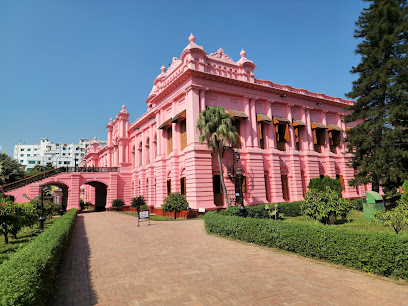
3D Art World
Experience interactive art at Dhaka's 3D Art World: Immerse yourself in stunning illusions and create unforgettable memories with family and friends.
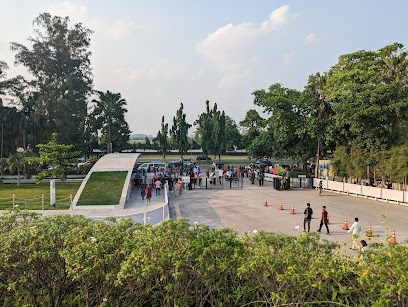
Banani Block C Park
Find serenity in Dhaka's bustling Banani at Block C Park: a green escape with lush gardens, walking paths & a vibrant community vibe.
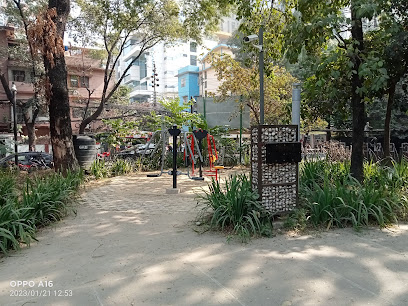
Gulshan Square গুলশান স্কয়ার
Discover Gulshan Square: A green escape in Dhaka's urban heart, blending nature, culture, and community in a vibrant setting.
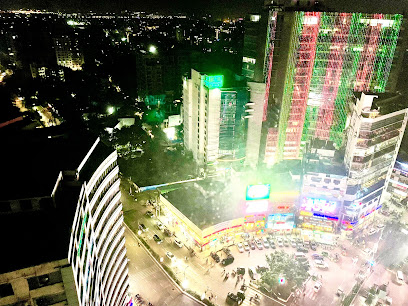
Banani Bidyaniketan Park
Escape the city bustle at Banani Bidyaniketan Park, a green space for relaxation and community in Dhaka's Banani.
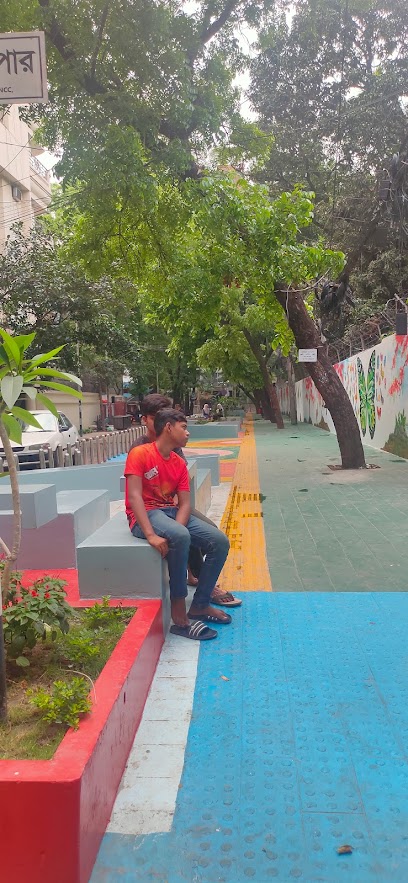
Gulshan Lake
Escape the city bustle at Gulshan Lake, a serene urban oasis in Dhaka offering scenic beauty and recreational activities.
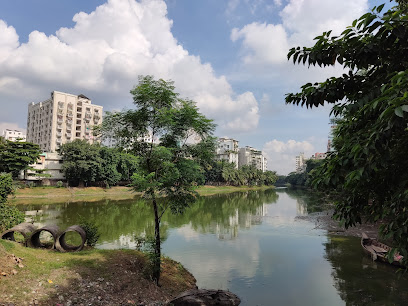
Nouka ghat
Experience the vibrant river culture of Dhaka at Nouka Ghat, a bustling hub of traditional boats and timeless Bangladeshi traditions.
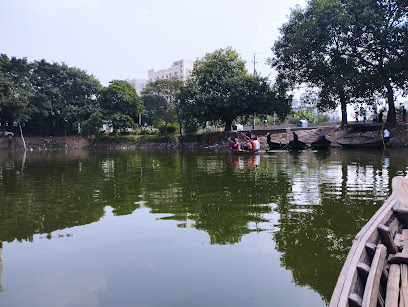
Essential places to dine
Star Kabab & Restaurant
Discover the vibrant flavors of Bangladesh at Star Kabab & Restaurant in Dhaka - where every dish tells a story.
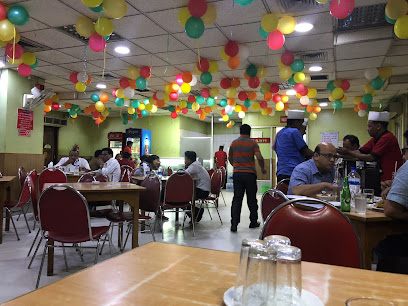
Woodhouse Grill
Experience the ultimate steak dining at Woodhouse Grill in Dhaka's upscale Gulshan area - where flavor meets sophistication.
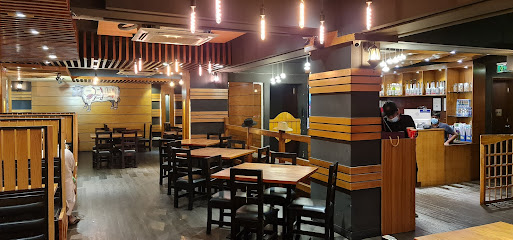
Chillox Banani
Discover the vibrant flavors of Chillox Banani - Dhaka's go-to destination for gourmet burgers and fast food delights.
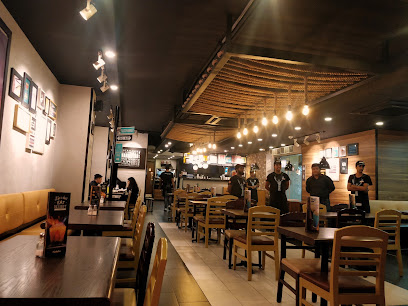
Jatra Biroti
Discover the essence of Bengali cuisine at Jatra Biroti - where tradition meets modern dining in Dhaka's vibrant culinary scene.
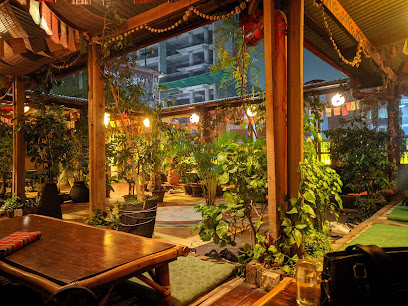
Alfresco Banani
Discover Alfresco Banani: Dhaka's enchanting rooftop restaurant offering stunning skyline views and exquisite culinary delights.
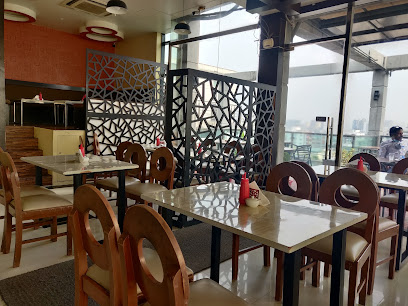
Tree House
Discover the unique flavors of Tree House in Dhaka - where fresh seafood meets succulent steaks in an inviting ambiance.
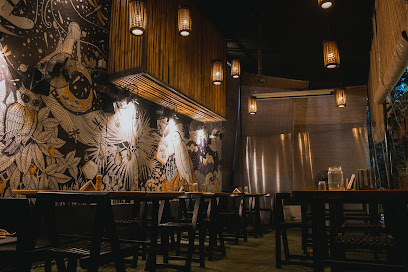
Sajna Restaurant
Discover authentic Indian flavors at Sajna Restaurant in Dhaka's Gulshan area, where every dish tells a story.
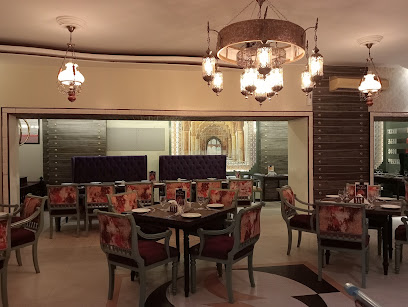
Time Out
Experience the vibrant flavors of Bangladesh and beyond at Time Out Restaurant in Dhaka's lively Gulshan district.
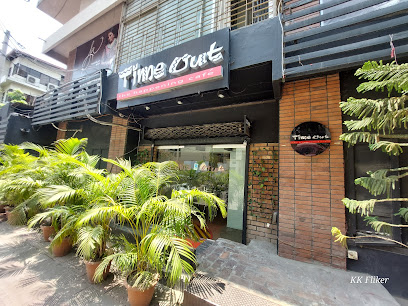
Paturi Banani
Experience authentic Bangladeshi cuisine at Paturi Banani in Dhaka - where tradition meets flavor.
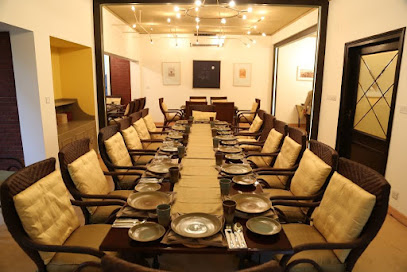
Yumi at Sheraton Dhaka
Experience exquisite Japanese cuisine at Yumi in Dhaka's Sheraton Hotel with breathtaking city views.
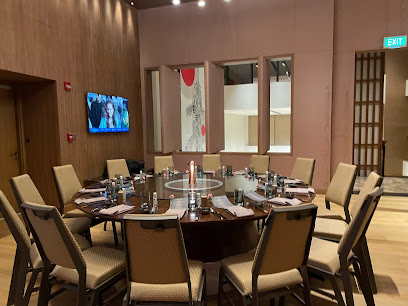
Markets, malls and hidden boutiques
Artisan Banani
Discover stylish clothing and traditional craftsmanship at Artisan Banani, a premier boutique in Dhaka's Gulshan area.
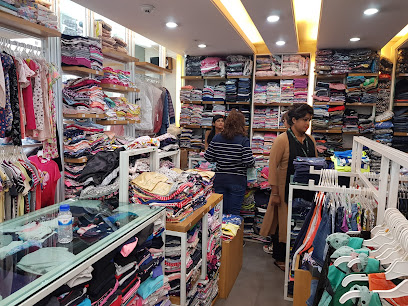
Archies Gallery
Discover unique gifts and souvenirs at Archies Gallery, a charming gift shop in Dhaka, perfect for capturing the essence of Bangladeshi culture.
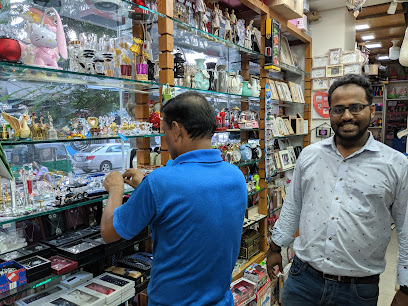
Desire Islamic Store
Discover unique Islamic gifts and clothing at Desire Islamic Store in Dhaka, where tradition meets modern style.
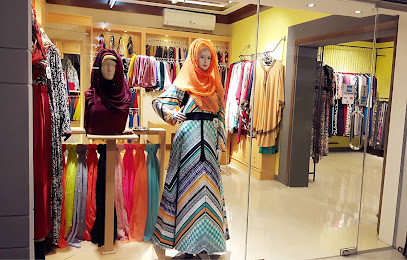
Gemini Shopping Center
Explore Gemini Shopping Center in Dhaka for a unique blend of shopping, dining, and local culture in a vibrant setting.
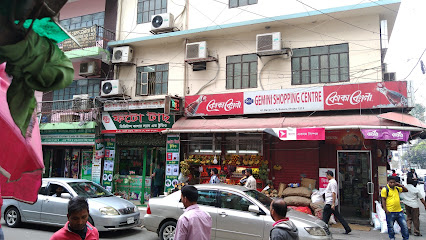
Nova With Genuine Swarovski Elements
Experience the elegance of Swarovski crystals at Nova, Dhaka's premier boutique for exquisite jewelry and decor.
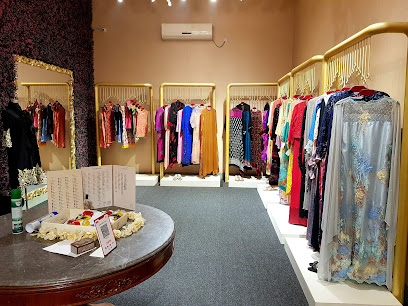
Unique Collection
Explore Unique Collection in Dhaka for the finest gifts and cosmetics, showcasing the charm of Bangladeshi craftsmanship and creativity.

Hallmark Gift
Explore Hallmark Gift in Dhaka's Banani Super Market for unique gifts and heartfelt souvenirs that capture the essence of your travels.
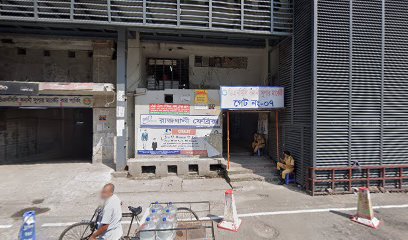
Banani Best Collection
Explore Banani Best Collection in Dhaka for a diverse range of fashionable clothing and accessories that cater to every style and budget.

New Banani Variety Store
Discover the essence of Dhaka at New Banani Variety Store, where local goods, delightful confectioneries, and essential services meet.

Unique Traders
Explore Unique Traders in Dhaka for a vibrant shopping experience with local and international brands, delicious dining, and cultural events.
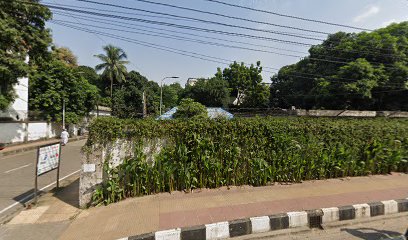
Essential bars & hidden hideouts
Bluemoon Recreation Club
Discover a vibrant lifestyle at Bluemoon Recreation Club, where dining, fitness, and entertainment blend seamlessly in Dhaka's lively atmosphere.
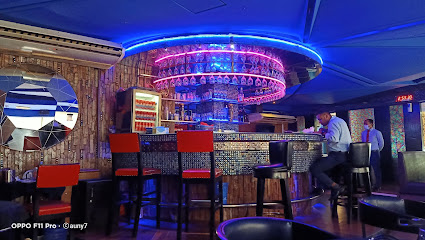
SKYe Lounge Bar
Discover SKYe Lounge Bar, where Dhaka's vibrant nightlife meets exquisite drinks and a chic atmosphere for an unforgettable evening.
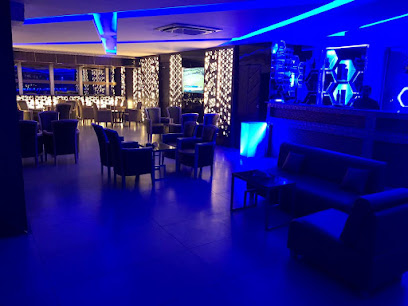
Loki Restaurant & Bar
Discover the vibrant flavors and lively atmosphere at Loki Restaurant & Bar in Dhaka, where every meal is a celebration of culinary excellence.
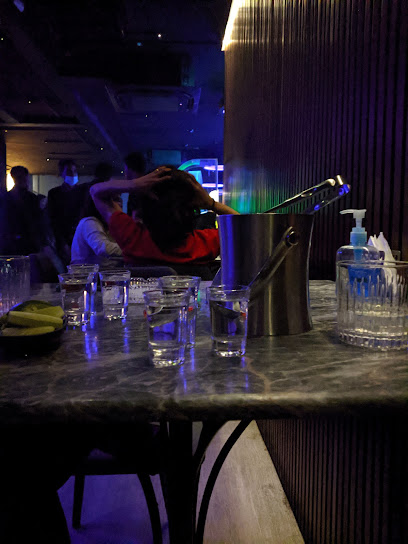
32 Degree
Experience the stylish ambiance and curated drinks at 32 Degree Lounge in Dhaka's bustling Gulshan district.
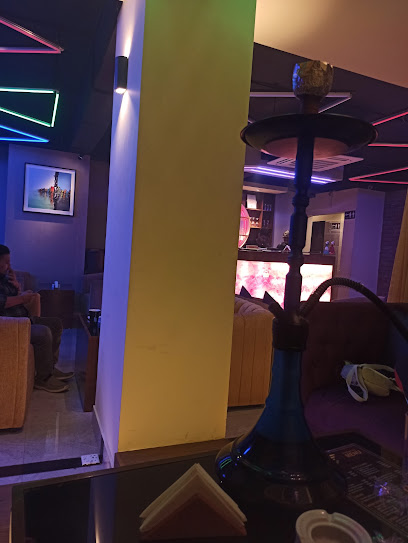
YA HABiBi
Discover the vibrant flavors and lively atmosphere of YA HABiBi, a top-notch restaurant and lounge in Dhaka's Gulshan neighborhood.
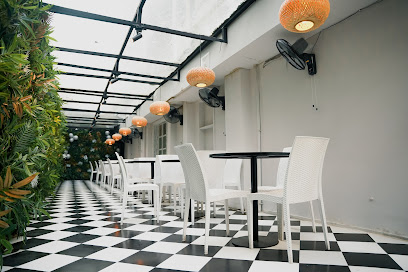
Plan B Restro & Bar
Experience the vibrant culinary scene of Dhaka at Plan B Restro & Bar – where delightful cuisine meets a lively atmosphere.
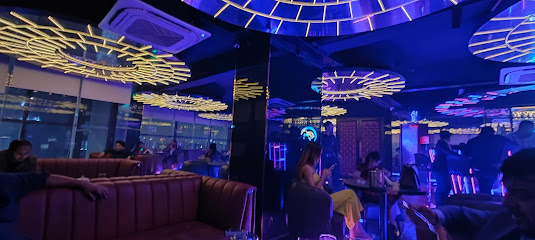
The Elite
Discover The Elite, Dhaka's premier bar where exquisite cocktails meet an upscale atmosphere and vibrant nightlife.
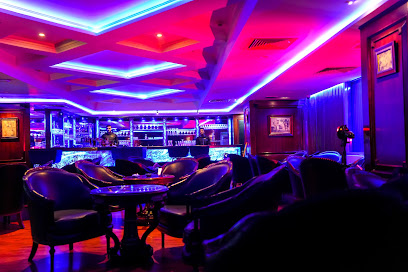
Jazz Reloaded Lounge
Discover the lively spirit of Dhaka at Jazz Reloaded Lounge, where live jazz meets a stylish atmosphere and delightful cocktails.
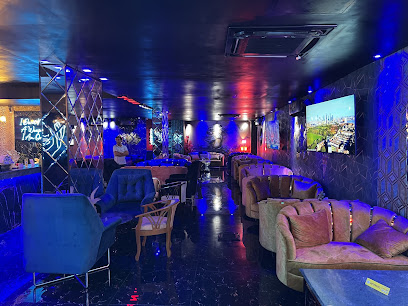
Ocean Blend (ওশান ব্লেন্ড)
Discover the refined charm of Ocean Blend in Dhaka, where handcrafted cocktails and a vibrant atmosphere await your arrival.
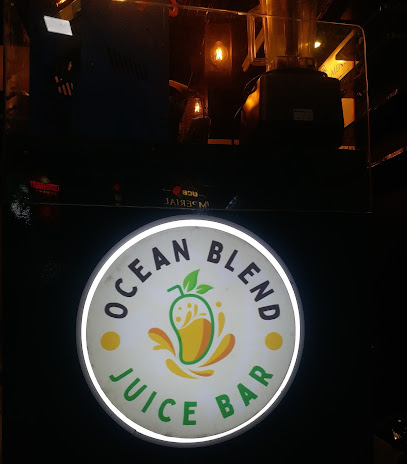
Arish’s Dom
Experience the lively ambiance and vibrant nightlife at Arish’s Dom, a top pub destination in Dhaka’s Gulshan area.

Local Phrases
-
- Helloহ্যালো
[hyālō] - Goodbyeবিদায়
[bidāẏa] - Yesহ্যাঁ
[hyām̐] - Noনা
[nā] - Please/You're welcomeদয়া করে
[dayā karē] - Thank youধন্যবাদ
[dhan'yabāda] - Excuse me/Sorryদুঃখিত
[duḥkhita] - How are you?আপনি কেমন আছেন?
[āpani kēmana āchēna?] - Fine. And you?ভালো। আর তুমি?
[bhālō। āra tumi?] - Do you speak English?আপনি ইংরাজি কথা বলতে পারেন?
[āpani iṅrāji kathā bōlatē pārēna?] - I don't understandআমি বুঝি না
[āmi bujhi nā]
- Helloহ্যালো
-
- I'd like to see the menu, pleaseমেনু দেখতে চাই
[mēnū dēkhōtē chāi] - I don't eat meatআমি মাংস খাই না
[āmi māṅsa khāi nā] - Cheers!চিয়ার্স!
[ciẏārs!] - I would like to pay, pleaseদয়া করে টাকা দেওয়ার ইচ্ছুক
[dayā karē ṭākā dē'ōẏāra icchuka]
- I'd like to see the menu, pleaseমেনু দেখতে চাই
-
- Help!সাহায্য!
[sāhāy'a!] - Go away!চলে যাও!
[calē yā'ō!] - Call the Police!পুলিশকে কল করুন!
[pulishkē kala karuna!] - Call a doctor!ডাক্তারকে কল করুন!
[ḍāktārkē kala karuna!] - I'm lostআমি হারাইয়া গেছি
[āmi hārāiyā gēchi] - I'm illআমি অসুস্থ
[āmi asustha]
- Help!সাহায্য!
-
- I'd like to buy...আমি ... কিনতে চাই
[āmi ... kinatē chāi] - I'm just lookingআমি কেবল দেখছি
[āmi kēbala dēkhachhi] - How much is it?এটা কত টাকা?
[ēṭā kata ṭākā?] - That's too expensiveএটা খুব মহঙ্গ
[ēṭā khuba mahōṅga] - Can you lower the price?দাম কমাতে পারবেন?
[dāma kamātē pārabēna?]
- I'd like to buy...আমি ... কিনতে চাই
-
- What time is it?এখন কতটা বাজে?
[ēkhana kataṭā bājē?] - It's one o'clockএটা একটা বাজে
[ēṭā ēkaṭā bājē] - Half past (10)দশের পাঁচে
[daśēra pām̐cē] - Morningসকাল
[sakāla] - Afternoonদুপুর
[dupura] - Eveningসন্ধ্যা
[sanh'ya] - Yesterdayগতকাল
[gatakāla] - Todayআজ
[āja] - Tomorrowআগামীকাল
[āgāmīkāla] - 1এক
[ēka] - 2দুই
[du'i] - 3তিন
[tina] - 4চার
[cāra] - 5পাঁচ
[pām̐ca] - 6ছয়
[chôẏa] - 7সাত
[sāta] - 8আট
[āṭa] - 9নয়
[nôẏa] - 10দশ
[daśa]
- What time is it?এখন কতটা বাজে?
-
- Where's a/the...?এখানে ... কোথায়?
[ēkhanē ... kōthāẏa?] - What's the address?ঠিকানা কি?
[ṭhikānā ki?] - Can you show me (on the map)?আপনি আমাকে দেখাতে পারবেন (ম্যাপে)?
[āpani āmākē dēkhātē pārabēna (myāpē)?] - When's the next (bus)?পরের (বাস) কখন?
[parēra (bāsa) kōhana?] - A ticket (to ....)একটা টিকেট (.... এ)
[ēkaṭā ṭikēṭa (.... ē)]
- Where's a/the...?এখানে ... কোথায়?
History of Banani
-
Banani, known for its upscale residential spaces and commercial establishments, developed significantly in the late 20th century. Initially a quiet area, it began to transform during the 1980s as urbanization took hold in Dhaka. The establishment of modern infrastructure attracted affluent residents and businesses, marking Banani as a center of social and commercial activity.
-
Banani has evolved into a cultural melting pot, reflecting the diverse heritage of Dhaka. The neighborhood is home to a variety of restaurants, cafes, and cultural centers that celebrate both local and international cuisines. This fusion is indicative of the broader cultural exchanges occurring in Dhaka, influenced by its historical connections as a trade hub in South Asia.
-
In recent decades, Banani has gained recognition for its educational institutions, including prominent schools and colleges. The establishment of these institutions has attracted families seeking quality education, further enhancing the neighborhood's reputation as a desirable place to live. This focus on education aligns with Dhaka's broader trend of prioritizing educational development in urban planning.
-
Banani Lake, an artificial lake constructed in the late 20th century, serves as a vital green space within the urban landscape of Dhaka. The lake not only enhances the aesthetic appeal of the neighborhood but also offers recreational opportunities for residents. It is a testament to the city's efforts to incorporate natural elements into its rapidly urbanizing environment, emphasizing the importance of maintaining green spaces in a bustling metropolis.
-
Over the years, Banani has also become a site of political significance in Dhaka. Its proximity to key governmental and diplomatic institutions has made it a hub for political activism and gatherings. The neighborhood has witnessed various protests and campaigns, reflecting the dynamic political landscape of Bangladesh and the active engagement of its residents in national issues.
Banani Essentials
-
Banani is well-connected to other neighborhoods in Dhaka. From the Dhaka Airport, you can take a taxi or ride-sharing service, which takes approximately 20-30 minutes depending on traffic. If you're coming from the city center, the easiest option is to take a CNG (compressed natural gas) auto-rickshaw or a taxi, which should take around 30-45 minutes. Public buses also run routes to Banani, but may not be the most convenient for tourists unfamiliar with the local transit system.
-
Banani is a compact neighborhood, making it ideal for walking. However, for longer distances, you can use CNG auto-rickshaws, which are widely available and affordable. Ride-sharing apps like Uber and Pathao are also popular in the area. Public buses are available but can be crowded and may not be the best option for tourists. Bicycles can be rented from local shops, but be cautious of traffic conditions.
-
Banani is generally safe for tourists, but like any urban area, it's wise to remain vigilant. Avoid walking alone at night, especially in less crowded areas. Be cautious around the Banani Bridge and some streets near the bus stations, as these areas have reported higher instances of petty crime targeting tourists. Always keep an eye on your belongings and avoid displaying valuables.
-
In case of emergency, dial 999 for police assistance, or 163 for ambulance services in Bangladesh. The nearest hospital is the United Hospital in Gulshan, which is well-equipped for medical emergencies. Always carry a copy of your travel insurance and local emergency contacts. Local pharmacies are available for minor health needs.
-
Fashion: Do dress modestly, especially when visiting religious sites. Avoid shorts and sleeveless tops. Religion: Do respect local customs; it's advisable to remove shoes when entering homes or religious sites. Public Transport: Do offer your seat to women, elderly, and disabled persons. Don't engage in loud conversations. Greetings: Do greet with a friendly smile and a handshake. Do not initiate physical contact beyond a handshake, especially with women. Eating & Drinking: Do try local foods, especially street food, but be cautious about hygiene. Don't eat in public places during Ramadan as it may be considered disrespectful.
-
To experience Banani like a local, visit the nearby markets for fresh produce and local snacks. Engage with shopkeepers and locals, as they often have stories and recommendations. Try the local street food, particularly the fuchka (pani puri) and chotpoti. Attend local events or cultural festivals if your visit coincides with them, as they provide a great insight into local life. Also, explore hidden cafes and parks where locals relax to truly immerse yourself in the neighborhood's atmosphere.
Nearby Cities to Banani
-
Things To Do in Comilla
-
Things To Do in Agartala
-
Things To Do in Barisal
-
Things To Do in Khulna
-
Things To Do in Jessore
-
Things To Do in Sylhet
-
Things To Do in Rajshahi
-
Things To Do in Chittagong
-
Things To Do in Aizawl
-
Things To Do in Rangpur
-
Things To Do in Shillong
-
Things To Do in Kolkata
-
Things To Do in Guwahati
-
Things To Do in Cox's Bazar
-
Things To Do in Phuentsholing








